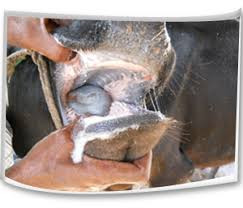
BY PHYLLIS MBANJE COVID-19 vaccine hesitancy is still rife in some communities in the Midlands province with reports that in the first COVID-19 vaccination blitz, some parents and religious groups were deliberately withdrawing their children from school to avoid the life-saving jab.
Only 36 000 of the eligible 220 000 population were inoculated in Silobela during the first campaign. To date since February 2021 a total of 118 000 people have received their jabs.
As a result, the Health ministry has launched a sensitisation campaign which is ending this month to fight myths associated with the vaccination programme.
The targeted beneficiaries include children and adults aged 12 and above.
Addressing the media at Silobela District Hospital on Monday, Kwekwe district medical officer Nyasha Mwasunda said the recently introduced second vaccination blitz had seen an improvement in vaccine uptake.
“When the first blitz was introduced towards the end of March, we tried hard to vaccinate huge numbers, but we faced some challenges,” Mwasunda said.
“We received reports that there was vaccine hesitancy in the area where some parents were questioning the reason why children aged between 12 and 17 were being vaccinated when initially this group had been excluded.
“We did not have enough time to educate rural communities on interventions like vaccination. Gradually, the communities have been forthcoming and the numbers are improving,” he said.
- Chamisa under fire over US$120K donation
- Mavhunga puts DeMbare into Chibuku quarterfinals
- Pension funds bet on Cabora Bassa oilfields
- Councils defy govt fire tender directive
Keep Reading
Meanwhile, some religious sects have become an impediment to the vaccination exercise with some refusing to be vaccinated.
“Some religious sects told our team that they would not be accepting interventions like vaccination. We are trying to use other means and it is work in progress,” Mwasunda said.
Artisinal miners in Silobela were also one of the hard to reach people because they are highly mobile.
“Generally, artisanal miners have a poor health-seeking behaviour, but we are working with their representative unions. The first blitz had many logistical challenges besides the vaccine hesitancy. We did not have enough fuel.
“The resources later came and we went full throttle. We are now better prepared for this second blitz and we will surpass the numbers,” he said.
- Follow Phyllis on Twitter@pmbanje










